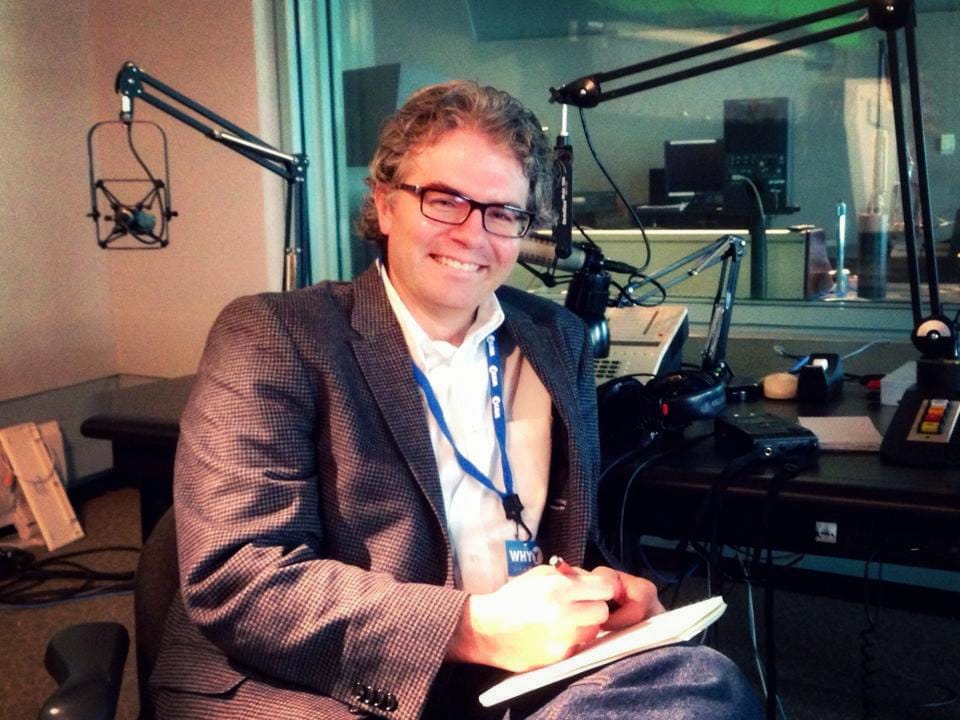National Public Radio marks 50 years
National Public Radio is one of the staples of American life, and it is an example to the world. It is a home for some of the country’s best and most responsible journalists, and has roots in cities and communities across the country. It is based on the idea that the work of a free press is also the people’s business, and all citizens of a free society have a right to access evidence-based reporting about the world around them.

NPR turned 50 years old yesterday. As NPR itself reports:
On May 3, 1971, All Things Considered made its debut as the first national public radio program, redefining the substance and sound of national news.
The creator of that first program, Bill Siemering, has explained that he “wanted to hear voices that aren't heard generally on the air and to have first-person accounts of these things.” Susan Stamberg, who hosted All Things Considered in those early years, said in that same interview:
The most valuable thing that he said at the time, as I was trying to be as ‘authoritative’ as those men, was, ‘Be yourself.’ And I thought, what could he mean? ... Nobody says "Be yourself" except Mr. Rogers. Other people say, ‘Sit up straight. Cut your hair. Comb your hair. Lose five pounds. Make some correction.’ But not Bill. He said, ‘Be yourself,’ because that's what he wanted to hear on the radio. The natural sound of human beings talking to one another.
In 1976, NPR established a division specifically devoted to developing programming for underrepresented groups. The aim was to ensure it would be not only a mainstream national network, but a fabric of voices better able to represent the true range and diversity of American experiences.
Audie Cornish, now a co-host of All Things Considered, told CBS News that the founding mothers set an example of being generous with their skills. She notes Cokie Roberts would reach out and check in on her work in Congress and give notes and guidance. The national network and its local affiliates became a community of people working to let their audience know what is happening, so they can make informed personal choices in their own lives.
NPR has also grounded and informed the heart of mainstream American news and reporting, in the best way. Don Shelby is not only executive producer of the Earth Intelligence podcast, and a good friend. He has also won three national Emmy awards and two George Foster Peabody awards for broadcast journalism. Don describes NPR’s influence with gratitude, saying:
Though I was working in daily journalism on the commercial side, all my best idea-seeds had been planted by something I heard on NPR first. People in my shop thought me a genius of deep insight. If they had just asked me, I would have said, ‘I stole that idea from NPR.’
Margaret Low, who started at NPR in 1982 and is now CEO of Boston NPR member station WBUR described the generosity of listeners, saying:
We got letters this year from people who said, ‘I'm not working right now, but here's $25. It's the most I could give, but you mean the world to me.’
During the last year, when the COVID-19 pandemic shut down American society and forced millions to stay in their homes, break their routines, and forego income, this relationship was rediscovered for many listeners. While many came to spend even more time with NPR, listening around the clock, overall ratings declined, because people were no longer listening during their commute to work.
One thing many who don’t listen to NPR may not know—and this may be more important at this precarious moment than ever before—is that you never hear partisan vitriol or personal attacks of any kind on NPR. Even where contentious social and political issues are being discussed, the focus is on facts, human experiences, and the work that happens in a constructive, informed civic space.

This dedication to a constructive civic space is part of why NPR is an example to the world. Since the advent of radio, there have been attempts by some to abuse the medium to manipulate public opinion. In its darkest moments, radio was used by autocrats to sow hate and incite violence. NPR shows radio can still be what is was originally intended to be: a tool for delivering instructive information to people.
That information effect means an informed citizenry is better able to judge what is real and what is urgent, and to act responsibly in service of a shared project of self-government. It means we can expand the space for thoughtful problem-solving and for reliable defense of everyday wellbeing.
Thank you to all of the hard-working truth-tellers that make NPR and its member stations such a resource for people across our society and around the world.
More about NPR at 50:

